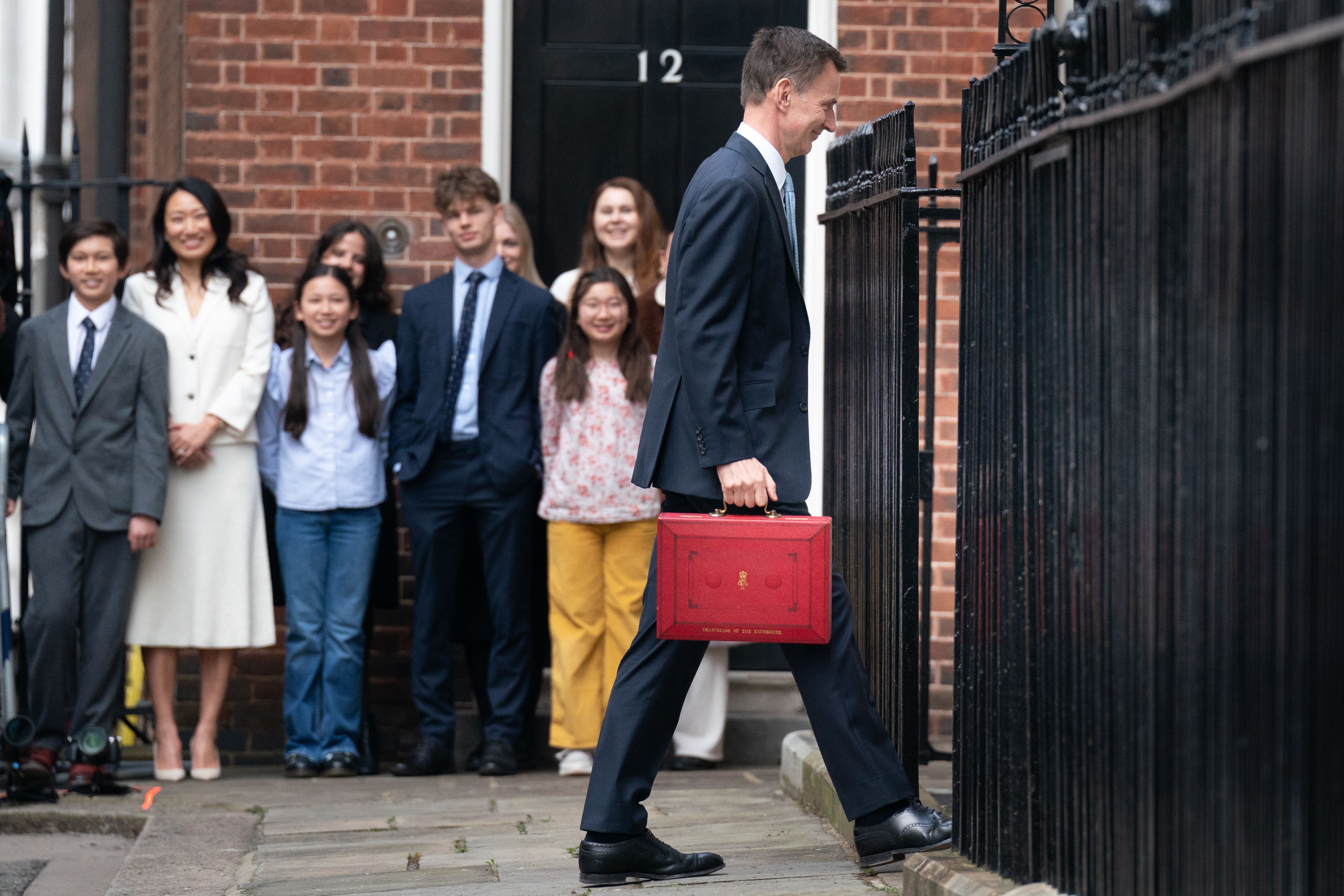Inflation to fall below 2% target in ‘next few months’, says OBR
The Office for Budget Responsibility also warned that the slowdown in inflation could be knocked off course by disruption in the Middle East.

Inflation is set to drop below the Government’s 2% target rate within a “few months” as the fiscal watchdog upgraded economic growth predictions for the next two years.
But the Office for Budget Responsibility (OBR) also warned that the slowdown in inflation could be knocked off course by disruption in the Middle East and surge by as much as 7% in a worst-case scenario.
The fresh economic forecasts came as Chancellor Jeremy Hunt confirmed a 2p cut in national insurance for employees and the self-employed during the important pre-election Budget.
He hailed the projections as signs of “progress”, adding that “because we have turned the corner on inflation, we will soon turn the corner on growth”.
The OBR said the UK is set to recover from recession faster than its previous forecasts and estimates by economists.
It estimated that UK gross domestic product (GDP) will grow 0.8% this year.
In November, the official forecaster had predicted 0.7%.
Economists had widely expected forecasts would be downgraded, with a consensus of experts predicting a 0.4% increase.
It comes after sluggish growth last year, when the economy grew by 0.1% following a recession in the second half of the year. It had been expected to grow by 0.6%.
The OBR also upgraded its growth forecast for next year from 1.4% to 1.9%.
It kept its prediction the same for 2026 but slightly downgraded 2027 from 2% to 1.8%.
The forecaster also predicted that inflation would fall quicker than previously predicted, having eased back sharply in recent months.
Interest rate rises by the Bank of England – which took the figure to a 15-year high of 5.25% – have helped to quash inflationary pressure.
The OBR said it expects CPI (Consumer Prices Index) inflation to average 2.2% this year, down from a previous forecast of 3.6%.
However, it also warned that this could be scuppered by tensions in the Middle East and any impact on energy prices.
A Middle East-driven energy price shock could cause inflation to shoot as high as 7%, the forecast said.
Mr Hunt said on Wednesday that his latest Budget package would cut personal taxes to their lowest level for almost 50 years.
However, the OBR said the tax burden is still set to rise to its highest level since 1948, amid forecasts it will represent 37.1% of GDP within the next five years.
The forecaster said proposed tax cuts would be partly financed by some reductions to spending as well as a fall in fiscal headroom – the state’s buffer to meet fiscal rules – from around £13 billion to £8.9 billion.
However, OBR chairman Richard Hughes said some widely expected spending commitments would wipe out this headroom over the next five years.
“If the defence budget is increased to 2.5% of GDP by 2030 as pledged, we think that would have an impact of £15 billion to £16 billion against that headroom,” he said.
“There would also be a further £4.5 billion impact if fuel duty is frozen in the coming years.”
Evan Wohlmann, lead analyst at influential ratings agency Moody’s, said some projected spending cuts are also unlikely to materialise as currently forecast.
He said: “The UK Chancellor’s announcement of pre-election tax cuts while maintaining restrained spending plans will perpetuate the UK’s fiscal challenges.
“The Government’s plans imply real spending cuts for unprotected departments which in Moody’s view are unlikely to materialise given long-term spending commitments on health and defence.”
Mr Hunt also said the OBR had predicted that Government borrowing was set to reduce quicker than expected.
State borrowing is set to fall from 4.2% of GDP this year to below the 3% target in 2025/26, three years earlier than previously thought.
Subscribe to Independent Premium to bookmark this article
Want to bookmark your favourite articles and stories to read or reference later? Start your Independent Premium subscription today.
